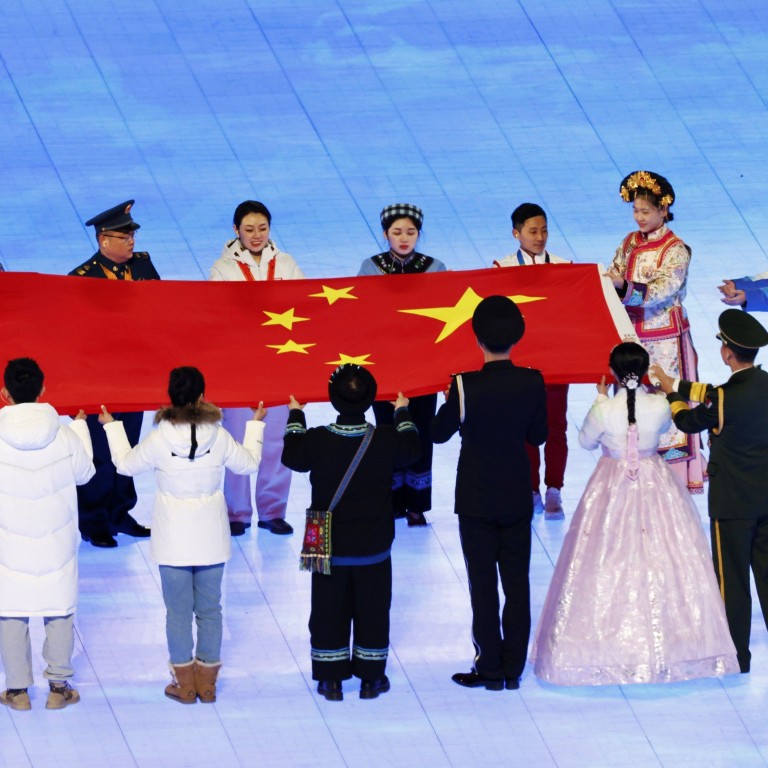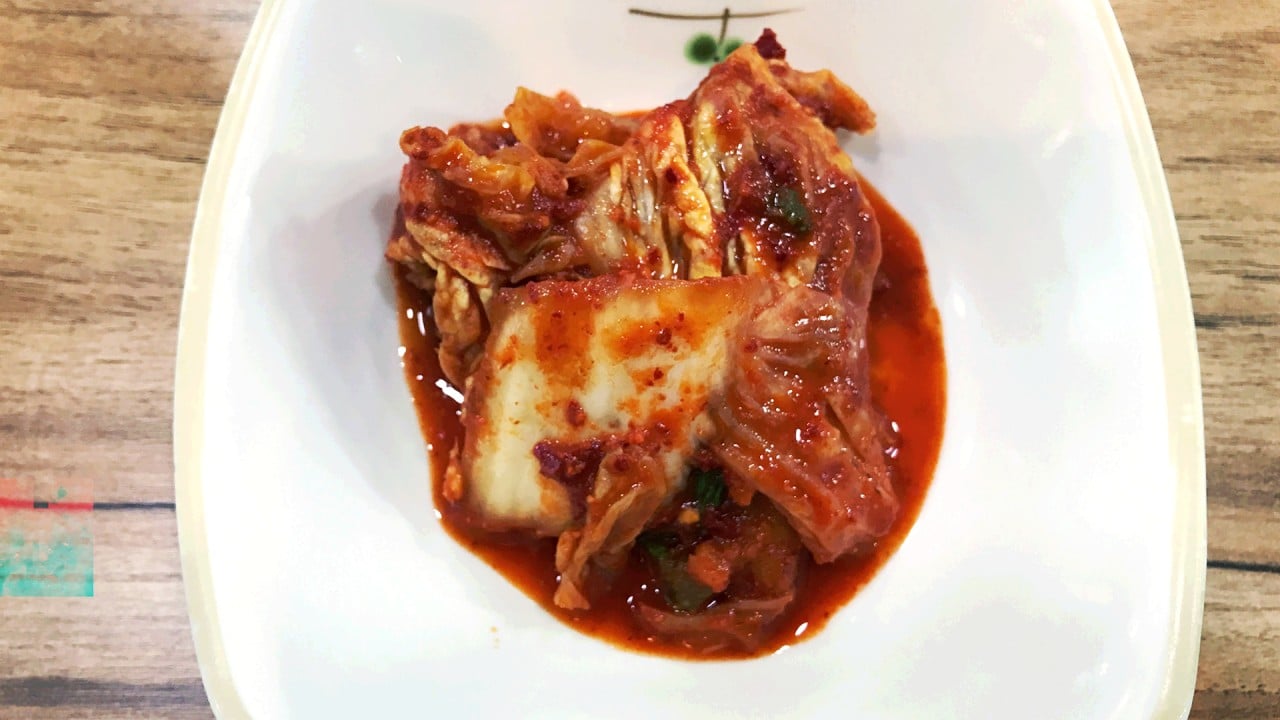
Is hanbok this year’s kimchi? China denies cultural appropriation over Korean dress at Olympics
- There was criticism after a woman in a hanbok helped carry the Chinese flag during the opening ceremony, with South Korean presidential candidates weighing in
- Chinese embassy says Koreans in China share the Korean peninsula’s culture and China respects its traditions
“The Korean people of China and the Korean peninsula share the same origin and have a common traditional culture, including costumes,” an embassy statement said. “These traditional cultures belong to both the peninsula and the Korean people of China, and claims of … cultural appropriation are totally untenable.
“China respects the historical and cultural traditions of the Republic of Korea and hopes that the ROK will also respect the feelings of the Chinese people of all nationalities, including the Korean people.”
A woman in a white and purple hanbok dress was among the performers representing China’s ethnic groups who carried the Chinese flag during Friday’s ceremony at Beijing’s “Bird’s Nest” National Stadium.
South Koreans expressed anger on social media, saying it was a continuation of China’s efforts to appropriate important aspects of Korean culture, including kimchi, a side dish of spicy, fermented cabbage.
Politicians in South Korea soon weighed in. Hours after the opening ceremony, Lee Jae-myung, the presidential candidate for the ruling Democratic Party of Korea, said on Facebook that China should “not covet the culture [of others]”.
“From discussions about kimchi, hanbok, to even where certain international celebrities are from, [China’s] cultural project is seriously damaging the pride of the Korean people,” Lee told reporters the next day in Seoul, according to newspaper The Hankyoreh.
Ahn Cheol-soo, a candidate from the opposition People’s Party, joined the debate, writing on Facebook: “To the Chinese authorities, I say: it’s hanbok, not hanfu.” Hanfu is the pinyin translation for hanbok.
Without mentioning the online discussion, Christopher Del Corso, interim charge d’affaires at the US embassy in Seoul, on Tuesday posted two photos of himself in a hanbok.
“What comes to mind when you think of Korea? Kimchi, K-pop, K-dramas … and of course hanbok,” he tweeted, using the hashtag OriginalHanbokFromKorea.
The criticism in South Korea has in turn drawn a backlash on Chinese social media.
According to the 2020 census, there are about 1.7 million ethnic Koreans in China, most of whom live near its border with North Korea. They are classed as one of the country’s official 56 ethnic groups.
“Nobody would disagree when you are saying the hanbok is a Korean traditional dress, but you can’t say that the traditional dress of the ethnic Koreans in China is the hanbok,” one person wrote on Weibo.
“There are 1.7 million ethnic Koreans in China and it is a good thing for them to wear the traditional dress,” another said. “Why complain?”
The debate about the hanbok is the latest such clash between the two neighbours after a row over kimchi last year. China was awarded certification from the International Organization for Standardization for pao cai, a pickled vegetable dish from Sichuan province, triggering angry accusations from South Koreans that the Chinese were trying to claim kimchi – also known in China as pao cai – as their own.


